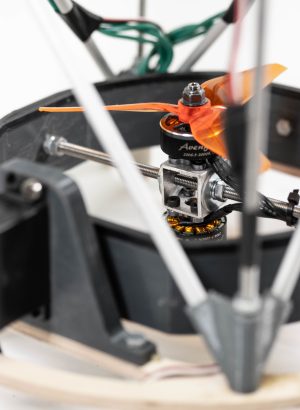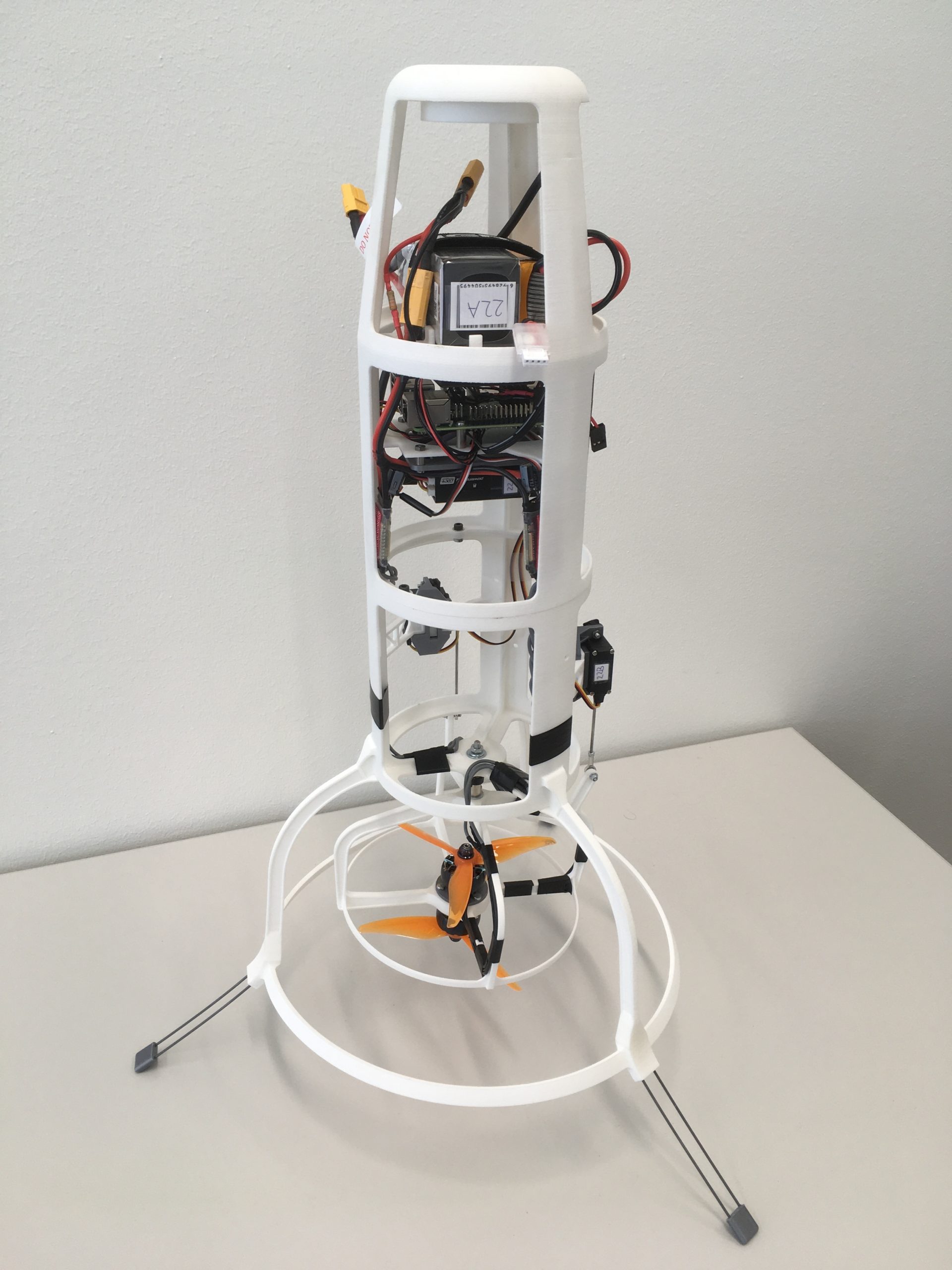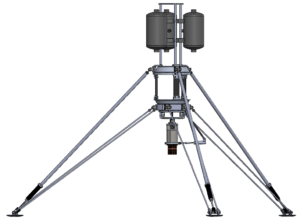ICARUS - RESEARCH
Founded in 2020, ICARUS is a research and development project on active attitude control technologies for future rocket teams. These technologies are crucial throughout the flight to control the trajectory and its smooth progress. The main objective is also to get our rockets back by landing them propulsively by reigniting their engines in the same way SpaceX is known to do, thus training students in technologies that are crucial to lowering the cost to reach space.
To support the development of our guidance, navigation and control algorithms, the team is developing several test platforms in parallel. As of today, a drone has been built and is now tested to replicate the behaviour of a rocket and explore the limits of our algorithms. The team’s focus this year is to work on the design of a new Hopper type rocket featuring a bi-liquid engine with the goal to actively stabilizing it, using thrust control and propulsively landing it. We’re currently aiming towards doing our first flight tests in summer 2023, so stay tuned !
TECHNOLOGIES IN DEVELOPMENT
OUR ALGORITHMS
Even though the ICARUS project works on concrete technologies, the base of the project remains the development of the various control, navigation and guidance algorithms. These algorithms aim to control the stability of the rocket as well as to optimize its trajectory throughout the flight in order to reach its objective, and in a near future to succeed in landing it. Due to the complexity of the task and the number of parameters taken into account, the team chose to use predictive control techniques based on a dynamic model previously developed on a simulator. From the flight data collected by our avionics, this technique makes it possible to anticipate in quasi real time the future evolution of the state of the rocket and thus to optimize the control instructions.
DRONE
As the first test platform developed and built by the team in 2020, our drone performs test flights on campus very regularly.
It allows us to test different ideas and strategies to improve and develop our flight algorithms (GNC). We’ve built a new improved and lighter version of it, thanks to a 3D printed structure. It offers a more accurate reproduction of a rocket behavior and simplifies the testing.


HOPPER
As the first vehicle to be powered by the new Bi-Liquid engine developed by the EPFL Rocket Team, the Hopper will be our long-term test platform. Entirely designed by the ICARUS team, it will allow us to learn how to control the new engine and make the first landings during an ambitious test flight campaign. The team is currently working on a preliminary version of the design and will start prototyping soon. The main goal is to do a first hop in Summer 2023!

